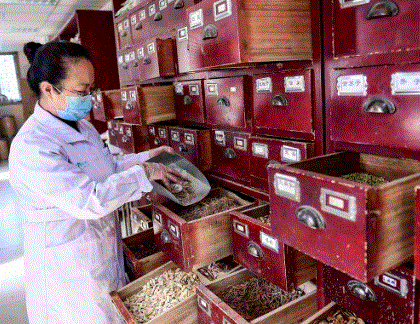
FSM News and Articles
World Health Organization and Beijing – an unhealthy partnership? Traditional Chinese Medicine (TCM) can be a source of useful drug compounds, but to treat all TCM as efficacious and safe is incredibly dangerous. In this time of COVID-19, many believe the WHO should be doing more to renounce unproven or disproven therapies.
FSM Friends’ News and Articles
FLICC: 5 techniques of science denial: If you look at the various movements that agitate to oppose conventional medicine, you will find that they employ similar tactics and arguments. Whether anti-vaxxers, or those promoting alternative medicine, there are common threads, and these threads are common to science denial in general. The five definable techniques were put forward by Pascal Diethelm and Martin McKee in a 2009 paper in the European Journal of Public Health:
F: Fake experts
L: Logical fallacies
I: Impossible expectations
C: Cherry picking
C: Conspiracy theories
In fact these same techniques are employed by the vast majority of science denialists, and once you recognize them, you’ll have one more tool for telling real science from pseudoscience.
General
Cervical pre-cancer rates down 88% in decade since HPV vaccinations began – first findings: “Among women born in 1995-96 – the first group to go through the regular vaccination programme in 2008/09 – there has been an 88% reduction in rates of cervical pre-cancer.
Great Moments in Health and Science
The Invention of the Hypodermic Needle. A history of syringes and needles: Having not changed a great deal since its invention around 1844, much of modern medicine would be drastically harder or even impossible without it: affecting everything from resuscitation to general anaesthesia.
Today’s Abused Health Concept
Laws to define scientific merit. Beijing threatens jail for doctors who ‘defame’ traditional Chinese medicine: The Chinese government has had laws requiring the promotion of Traditional Chinese Medicine (TCM) since 2016. Now Beijing is threatening criminal charges for anyone who criticises TCM. This is horrific. “Minor infractions would be punished by up to two weeks in ‘administrative detention’, and serious cases could lead to years in prison.”
Regardless of one’s opinions on the efficacy of TCM, such an approach can only be described as completely incompetent in regards to science.
I am reminded of a city that once passed laws equating pi to 3, in the hopes this would make it easier to teach maths. When law makers attempt to use laws to bend science to their preferences, everyone involved starts to look like fools. Science’s power and integrity is based in the idea that ANY idea must always be up for fair and honest criticism and attack. Valid concepts are able to defend themselves from the evidence. In fact attacks on ideas are highly encouraged as such interrogation often leads to new questions and deeper understanding. It is only weak, dishonest, or invalid concepts that need to hide behind the politics.
This also highlights the problems with scientific data that comes from China. It has long been known that TCM science from China is highly, measurably biased. How strong will that bias be when scientists can be thrown in jail if they report their findings accurately?
Thanks to Science
The Lancet has made one of the biggest retractions in modern history: Not quite a THANKS TO SCIENCE today, as retractions of two recent studies which used datasets from a US company headed by one of the authors, Surgisphere, have highlighted several problems the field of scientific research and how we translate it. (More detail on those events can be found here: https://www.nature.com/articles/d41586-020-01695-w ).
One of those is peer review. In the time of COVID-19, rapid publication is key, often at the expense of proper peer review. The peer review system itself is flawed (there is little incentive to perform it properly, or even do it at all, as it is generally done on a volunteer basis), but it is a key process in publishing new research, and essential to weeding out misconduct in many cases. “Peer review during a pandemic faces a brutal dilemma – the moral importance of releasing important information with planetary consequences quickly, versus the scientific importance of evaluating the presented work fully.”
The recent studies (published in the Lancet and New England Journal of Medicine, both very high-profile and respected journals) had huge impact before retraction – one lead to the halting of a WHO-sponsored trial into Hydroxychloroquine for treatment of COVID-19. Despite passing peer review, the studies were retracted by the authors, after not being able to verify datasets provided by Surgisphere. (There have also been claims that the analyses conducted by Surgisphere and its secretive algorithms seem ‘too good to be true’ and that more well-equipped analytic firms would have struggled to conduct these analyses within the timeframe.)
The obvious answer to this is to demand more rigorous peer review, and transparency of data and analysis methods. The obvious downside is that these will take more time, and delaying publishing during a pandemic (or indeed at any time) can mean delays in spreading important and life-saving information